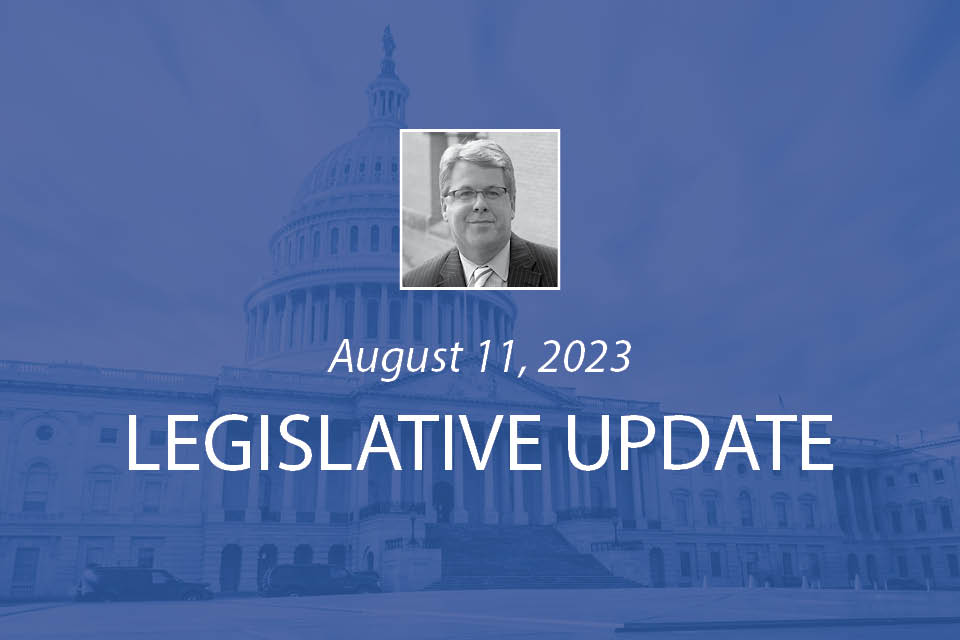On November 4th, ABMA staff attended an OSHA briefing on the recently announced Vaccine and Testing Emergency Temporary Standard (ETS).
The ETS takes effect immediately. Employers have 30 days (December 5th) to comply with all requirements except testing for employees who are not fully vaccinated.
By January 4th (60 days), covered employers must ensure that their employees have received their final vaccination dose, or that unvaccinated employees are testing on weekly basis. OSHA states that the ETS preempts state and local laws prohibiting vaccine/testing mandates or face covering requirements.
The ETS will remain in effect for six months, or until May 5, 2022. Pursuant to the Occupational Safety and Health (OSH) Act, the ETS becomes the proposal for a permanent standard. If no permanent standard is enacted before May 5, 2022, the ETS expires.
ETS SUMMARY:
- The ETS covers all employers with 100 or more employees.
- All covered employers must develop, implement, and enforce a mandatory COVID-19 vaccination policy.
- The ETS allows for an exception to mandatory vaccinations for employees who elect weekly COVID-19 testing. Employers do not have to pay for the cost of testing or provide paid leave for testing.
- Unvaccinated employees must produce a “verified” negative test on a weekly basis.
- Unvaccinated employees must wear a face-covering while at the workplace or in a work vehicle with a co-worker. Employers do not have to pay for the face-coverings.
- Covered employers must determine the vaccination status of each employee, obtain acceptable proof of vaccination, maintain records of each employee’s vaccination status, and maintain a roster of each employee’s vaccination status. The collection of this info should begin as soon as possible so employers understand which employees are not fully vaccinated.
- Covered employers must require each vaccinated employee to provide acceptable proof of vaccination status. The following list includes the acceptable documentation for proof of vaccination: the record of immunization from a health care provider or pharmacy; a copy of the U.S. COVID-19 Vaccination Record Card; a copy of medical records documenting the vaccination; a copy of immunization records from a public health, state, or tribal immunization information system; or a copy of any other official documentation that contains the type of vaccine administered, date(s) of administration, and the name of the health care professional(s) or clinic site(s) administering the vaccine(s).
- While employers may not invite or facilitate fraud, the ETS does not require employers to monitor for or detect fraud.
- Booster shots and additional doses are not included in the definition of fully vaccinated under the ETS. Therefore, an employer is not required to obtain vaccination-related information beyond what is considered necessary to demonstrate that the employee is fully vaccinated.
- Covered employers must provide employees reasonable time, including up to four hours of paid time, to receive each vaccination dose, and reasonable time and paid sick leave to recover from side effects experienced following each dose.
- Covered employers must maintain and make available for examination and copying to an employee, or an employee representative with written authorization, an employee’s COVID-19 vaccine documentation, any COVID-19 test results, and the aggregate number of fully vaccinated employees along with the total number of employees at that workplace.
- The records required by the ETS are considered to be employee medical records and must be maintained in accordance with 29 CFR 1910.1020 and must not be disclosed except as required or authorized by this ETS or federal law. Employers must only retain these records while the ETS is in effect.
- Covered employers must provide their employees with a copy of the ETS and the policies the employer has implemented to comply with the ETS; the CDC document entitled “Key Things to Know About COVID-19 Vaccines”; the employee’s rights under the whistleblower provision of the OSH Act and section 1904.35(b)(1)(iv) of the recordkeeping regulation, which prohibits retaliation when an employee reports a work-related illness; the criminal provisions in the OSH Act and other federal laws; OSHA concludes that these provisions prohibit falsifying a vaccination, testing, or other required record.
- Covered employers must report any work-related COVID-19 fatality to OSHA within eight hours of the employer learning of the fatality. Each COVID-19 case that results in in-patient hospitalization must be reported within 24 hours of the employer learning of the hospitalization.
- Testing shortages will not be a punishable offense as along as the employer can document their effort to comply with the ETS.
- Under the ETS, a “COVID-19 test” must be a test for SARS-CoV-2 that is: cleared, approved, or authorized, including in an Emergency Use Authorization (EUA), by the U.S. Food and Drug Administration (FDA) to detect current infection with the SARS-CoV-2 virus (e.g., a viral test); administered in accordance with the authorized instructions; and not both self-administered and self-read unless observed by the employer or an authorized telehealth proctor.
- An employee’s refusal to comply with the employer’s policy on vaccination would generally not be protected under the OSH Act and thus, the employee would be subject to termination. Before taking any personnel actions, however, employers should consult applicable law and/or labor management contracts.
- Employers in unionized workplaces with 100 or more employees must, like all covered employers, follow the minimum requirements established by the ETS. Nothing in the ETS, however, prevents employers from agreeing with employees and their representatives to implement additional measures, and the ETS does not displace collectively bargained agreements that exceed the requirements of the ETS. As examples of additional measures that could be implemented via collective bargaining, employers might agree to cover the costs of face coverings or medical removal, or to adopt a requirement that all employees, regardless of vaccination status, wear face coverings while working indoors.
- OSHA officials did not go into detail on enforcement plans but did say that they will rely mostly on filed complaints against employers.
OSHA has provided sample employer policy templates, fact sheets on the ETS and copies of required employee documents at their webpage. Click here to see the information.
On November 6, 2021, the United States Court of Appeals for the Fifth Circuit granted a stay of the ETS. The order was issued in one of several lawsuits filed around the country challenging the legality of the ETS.
We anticipate more rulings in the coming days and weeks from other federal appeals courts. Some will follow the Fifth Circuit’s footsteps and block the ETS, others ruling that the ETS stands on solid legal footing. With a patchwork of various legal rulings expected, there will be a unifying judicial order having the final say on this matter.
While the legal future of the ETS remains unknown, covered employers should continue preparing for the ETS as if it is going to take effect while the litigation situation plays out.
To begin the compliance process, employers should take two steps now.
1. Begin to build out their rosters detailing which employees are vaccinated and which are unvaccinated.
2. Decide if the company policy will be full vaccination for all members or allow unvaccinated employees to test weekly and wear a mask.
The ABMA will continue to analyze the ETS and will provide necessary updates as they become available. If you have specific questions, please email them to us here.




